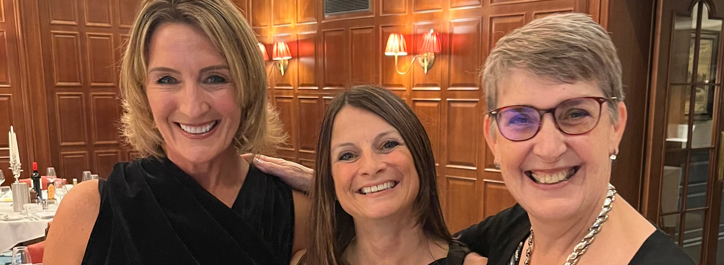How Eastern region organisations are putting agile working into practice
At our Best Employers Eastern Region awards event, we heard from Norwich and Cambridge based Made Agency about its agile working practice of a six-hour day. To follow on from this, we wanted to explore other examples of organisations in our region embracing agile working and the benefits it brings to both the business and its employees.
While agile working does encompass flexible working, it goes beyond this to also focus on the most efficient places and ways to work which will be the most productive. For example, when Mark Merrywest, Managing Director at creative agency Made, decided to introduce the six-hour working day and the Swedish ethos of Lagom (doing just the right amount), the agency was already providing flexible working hours. However, the flexible timings meant that teams were not really meeting up and communicating. Instead, Mark chose to focus on implementing agility through a shorter day. This still provided employees with the flexibility to achieve a work-life balance through the reduced office hours while smarter working practices were introduced to improve efficiency and make full use of the six hours. The agency now works in different segments throughout the day, with times for solid working with no distractions from emails and phones, and other times for tea breaks, internal meetings, answering emails and working collaboratively.
For Cambridge-based financial technology company Cashflows, agility has been introduced through a focus on ‘where’ people work. As well as enabling employees to work from home, Cashflows has adapted the layout of its office to create different areas such as open plan meeting rooms and hot desks. This gives employees a choice of different workspaces so that they can pick the most suitable space to work for different tasks throughout the day. Office spaces are increasingly becoming more agile in design and at our Best Employers event, we also heard from property company Bidwells about its mission to transform its Cambridge headquarters to create a truly agile workspace.
Soraya Butt, HR and Recruitment Coordinator at Cashflows, said: “In the two years I have worked for Cashflows, we have always encouraged agile working. For us, this means allowing our employees to work flexibly and to make decisions on the working style that allows them to operate as efficiently as possible. Our employee survey showed that many staff really appreciated this, particularly employees with families who need the flexibility to work from home and change their working patterns.”
Agile working is also a core part of the culture at Ipswich-based insurance company PolicyBee. However, as a business with multiple teams, its approach to agile working needed to be flexible enough to suit different job roles. Within its customer service team, PolicyBee needs a core contingent of employees in the office at all times. But they are still able to cater for requests from employees to adjust their working hours, such as to come in early and leave earlier. Technology has eased the management of this process. Employees can all use an app to check if there are enough people in the office for them to book time off or to change their working hours on a particular day. For PolicyBee’s marketing team, known as DigiBee, it is not as crucial that the office is always staffed. Employees in this team are able to work remotely or from home when prearranged. This not only allows them to manage their work and home life, it also gives them the flexibility to choose the most productive place to work. For example, one of the marketing team works from home on a Friday as she has two small children. But she also finds it easier to do her write-ups at home, where there are fewer disturbances than in the office environment.
All of the organisations we spoke to agreed that agile working had not only helped to improve business efficiency but also improved their ability to compete in recruiting and retaining high-calibre employees.
Dominique Fell-Clark, Head of Marketing at PolicyBee, said: “We believe our agile working approach inspires our employees to take more responsibility, helps them to feel more engaged and encourages people to work more as a team. Because the insurance industry has a reputation for being male dominant, and sometimes sexist, we’re proud to be able to accommodate agile working requests from both our male and female employees. For example, we have a male member of our team who asked for flexibility so he can do school pick-ups and to work different hours in school holidays. We believe that when people hear about our willingness to accommodate flexibility and to trust our employees to work in a way which best suits them, it really helps us to stand out from our competitors.”
These examples show that there are many different approaches businesses can take to implement agile working, but one thing all these organisations agreed on was the need to have the right culture in place. The traditional measures of success such as time spent in the office, attendance and adherence to set processes are not suited to an agile workplace culture, the focus needs to be on measuring the end results and the overall performance.
Mark Merrywest from Made Agency added: “Our industry means we are often competing for talent with bigger London agencies who pay more. But when we tell people about our working practices it is very appealing and makes us stand out. It is a big change and you do have to change the culture of the business to make it work. But it is worth it.”



